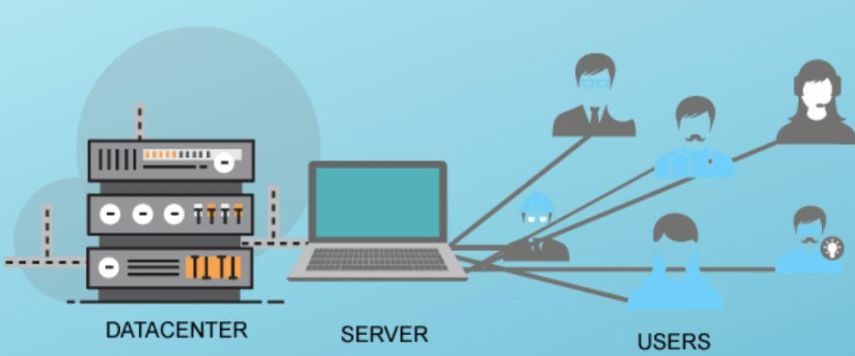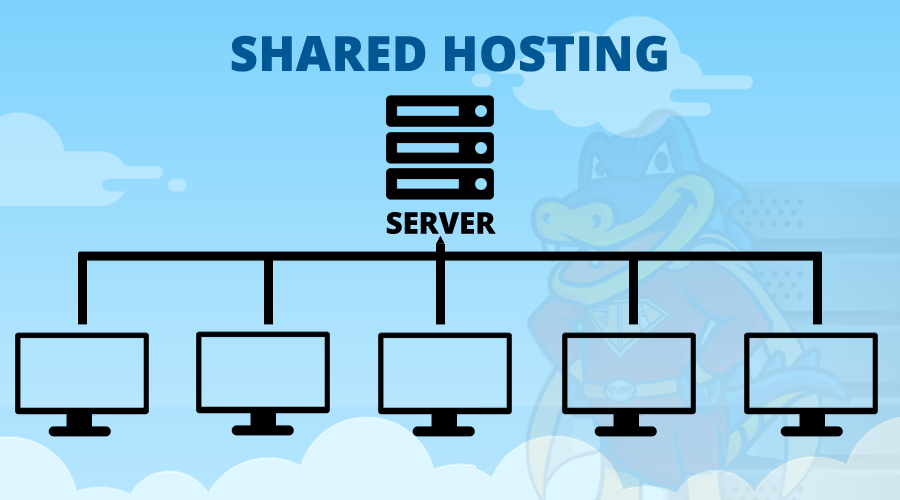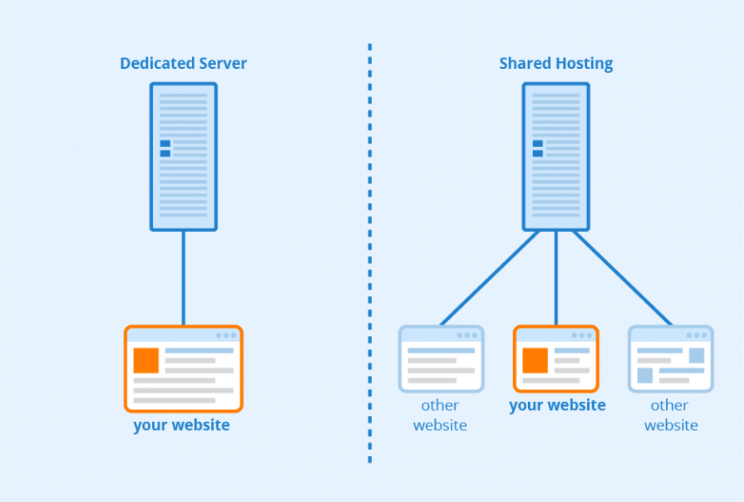
If you are looking for affordable web hosting for your website, consider shared hosting. It is one of the most used hosting solutions because it allows hosting multiple websites on a single server. However, the pros and cons of shared hosting should be considered.
There are several advantages to using shared hosting, like the low cost, but it also has shortcomings. This article covers the pros and cons of shared hosting to consider before deciding to use it for your website.
- Shared hosting is affordable and easy to set up
- Consider if shared hosting is the best fit for your website
- Understand the pros and cons of other web hosting solutions
- Shared hosting provides affordability and technical support
- Downsides of shared hosting include server overload, downtime, security issues, and limited control and customization
Importance of Considering the Pros and Cons of Shared Hosting
Before discussing why you should consider the benefits and downsides of shared hosting, let’s answer the question: what is a Shared Hosting plan?
Shared hosting involves multiple websites using the same server. The website owners can access limited server resources, depending on their hosting package.
Knowing the pros and cons of shared hosting is vital as it affects your choice of using the hosting solution or going for an alternative. Also, you will better understand shared hosting and make an objective decision instead of going with your gut feeling.
Not weighing the pros and cons of shared hosting can lead to a negative web hosting experience, resulting in frequent website downtime that can prevent users from accessing your site. Downtime equally affects organic traffic and search engine rankings, and your website might be removed from the Google index.
According to experts, the shared hosting market will grow at 15% CAGR and reach $72.2 billion by 2026.
Source: Wpbeginner.com
Understanding the Advantages and Disadvantages of Each Hosting Option

Aside from shared hosting, other hosting options include VPS hosting, dedicated hosting, and cloud hosting. This section briefly examines their features, benefits, and downsides.
Shared Hosting
As mentioned, shared hosting involves multiple websites sharing one physical server. Many users share the server resources, which makes it affordable compared to other hosting solutions. With shared hosting, users are allocated a server section to host their website files.
One feature of shared hosting that distinguishes it from other hosting solutions is that it can host hundreds to thousands of users. Also, each customer has databases, monthly traffic, email accounts, disk space, and FTP accounts. Depending on your web hosting plan, you may get additional add-ons.
Furthermore, every user of a shared hosting plan gets a percentage of the RAM and CPU, a single MYSQL server, an Apache server, and a mail server. Shared hosting is best for small websites or blogs that do not need high bandwidth or technical configurations. Therefore, if you are building a large website for an enterprise or e-commerce, it is better to consider VPS or dedicated hosting.
VPS Hosting
A Virtual Private Server (VPS) is often the preferred alternative to shared hosting. With VPS hosting, you have a personal server, and you choose the number of resources you want. You can also select your preferred pre-installed operating system and have a dedicated bandwidth and disk space.
VPS hosting suits websites looking to scale up, whose site is too large for shared hosting but too small for dedicated hosting. Furthermore, VPS hosting gives you more control, customizability, stability, scalability, and enhanced security features. However, you will experience technical administration issues.
This is because VPS hosting requires effort and a certain level of expertise to set up. Also, it is more expensive than shared hosting, which might affect your budget if you are financially constrained. Finally, if you have no experience with VPS hosting, you might find it overwhelming and not fully enjoy its features.
Dedicated Hosting
As the name implies, dedicated hosting or a dedicated server is devoted to a single website, and the user does not share the server or resources with anyone. As a result, you can customize it to meet your needs, and performance and security are also customizable. However, the web hosting provider handles server hardware, surrounding infrastructure, related services, and technical support.

Dedicated servers are best for websites with a lot of traffic, online media streaming, high-traffic web applications, etc. With this hosting solution, you get reliable website performance that is scalable, adaptable, and flexible. However, like VPS hosting, it is more expensive than shared hosting and requires more technical knowledge. Visit HostAdvice for a detailed comparison of shared vs. dedicated hosting.
Cloud Hosting
More than 100 zettabytes of data will be stored in the cloud by 2025.
Source: Cybersecurityventures.com
Cloud Hosting involves hosting websites on the cloud instead of the web. It uses computing tools from virtual networks and physical servers, allowing websites to scale better, and you have more flexibility to make changes. Most cloud hosting providers charge based on what you use, so you can fit your needs to meet your budget.
Unlike shared hosting, where users must change plans to access more resources, cloud hosting allows you to store data across multiple virtual servers. Cloud hosting servers span territories. As such, when demand increases on your website, it is easy to scale without switching plans, and you can adjust the parameters to meet your needs.
Why Is Understanding the Pros and Cons of Shared Hosting Options Vital?
Understanding the different hosting options and their pros and cons will help you know the one that best meets your needs. You will also know the one that fits your budget, technical expertise, and current and projected website traffic. Armed with all this information, it will be easier to make an informed decision.
Identifying the Hosting Option That Best Fits Your Website Requirement
Before choosing a web hosting service, you must know what you want and consider the following factors:
- Website Traffic: Your site’s traffic volume should determine the hosting solution used. For example, reputable shared hosting companies can handle 10,000 to 100,000 monthly pageviews. However, if you get more than that number, you may need another hosting type, like cloud hosting.
- Technical Requirements: Consider the technical requirements of the hosting solution and your skill level. If you are a beginner-level web developer, shared hosting would be better than VPS, which is more technically complex.
- Budget: How much is your budget? Shared hosting will serve you better if you are working with a small budget. But if you have enough funds, VPS or dedicated hosting are better options.
Aside from these three, consider server reliability/uptime scores, available upgrades, and features. Also, remember that some web hosting solutions are more suited to specific websites. For example:
- Shared hosting is best for small business websites, blogs, and personal websites
- VPS hosting is best for e-commerce sites, SaaS providers, and game makers
- Dedicated hosting is best for high-traffic corporate websites and e-commerce sites
- Cloud hosting is best for high-traffic sites with over 50,000 monthly pageviews
Pros of Shared Hosting

This article has explained shared hosting and the reasons to consider the pros and cons of shared services. It is also evident that there are several benefits of using shared hosting over other hosting solutions. Furthermore, shared hosting is preferred for small business websites, bloggers, and those starting their websites.
Below are some more of the benefits of shared hosting.
Affordable Cost
On average, it costs about $1 to $15 to use shared hosting to host websites.
Source: Hostinger.com
Again, if you have a limited budget, use shared hosting as it is very affordable. Shared hosting is cost-effective because all the users contribute to the server and hosting company costs. Most shared hosting providers charge as little as $1 and as high as $51 monthly.
Some of the best shared hosting providers on the market are HostArmada, FastComet, A2 Hosting, Ultahost, etc. These shared hosting providers offer different plans, money-back guarantees, and technical support.
Easy Setup and Maintenance
Another key advantage of shared hosting is that it is easy to set up, whether or not you have technical knowledge. Therefore, even entry-level web developers can set them up. Often, setting up shared hosting involves buying a plan and connecting your domain name to the hosting package.
Also, shared hosting is easy to maintain because of the built-in control panels. These control panels include cPanel, Plesk, Control Web Panel (CWP), ISPConfig, BlueOnyx, etc. Furthermore, a shared hosting company handles basic server administrative tasks like managing connections or restarting the server.
Technical Support
Websites can break down at any time. As such, shared hosting services provide technical support for users. Technical support is the more practical part of customer support, and the technical support team helps with:
- Fixing all hardware-related problems with servers
- Website migration
- Addressing server configuration
- Advising users on performance issues
Hosting companies provide technical support via email, live chat, ticket, knowledge base, and phone support. Note that some support like live chat, email, and phone are available 24/7 on most shared hosting platforms and unavailable in others.
Availability of Pre-Installed Software and Tools

Shared hosting companies provide pre-installed software and tools to help users start their websites. Pre-installed software scripts make it easy to install any technology your site needs to function. Examples of pre-installed software for shared hosting are WordPress, Joomla, Drupal, Magento, PrestaShop, OpenCart, and phpBB.
Scalability
Scalability in web hosting is a hosting server’s capability to take on a website’s load. This is vital as scalable hosting allows the website to stay online even if it experiences heavier traffic than usual. Shared hosting allows for easy scalability, meaning you can upgrade your hosting plan as your website grows.
This ensures your site does not experience downtime. Most hosting providers offer scalability features like disk space and bandwidth. Bandwidth refers to the volume of data transferable between a website, the Internet, and users. The more bandwidth you have, the faster it is to move data.
Check out our recommendations of the Best Shared Hosting Providers
Cons of Shared Hosting

Shared hosting has disadvantages, and they affect how your website performs, its security and its reputation. Therefore, carefully consider these drawbacks before choosing shared hosting over other options.
Limited Resources and Bandwidth
This is one of the most significant downsides of shared hosting. Since multiple websites are connected to the server, the resources, CPU, RAM, and bandwidth are insufficient. As a result, your website will experience slow loading speeds and decreased performance.
Security Risk
Another downside of shared hosting is the high-security risks. Websites hosted on a shared hosting server are prone to DoS attacks, and when it occurs, it affects all sites with the same IP address. Also, the lack of customization means you may be unable to mitigate DDoS attacks.
However, some web hosting companies provide domain isolation. Domain isolation ensures that other domains on a server are not affected in case of a malware attack. You can protect your website when using shared hosting with stronger passwords, two-factor authentication, DDoS protection, and a cloud firewall.
Limited Control and Customization Options
Since you are not the only one using the server, you have limited control and few customization options. Hosting companies limit customization to protect the server. As a result, the hosting provider keeps you from accessing the backend, and you can only use the tools and resources provided. Also, you cannot install custom software or change the configuration.
Performance Issues
Your website will experience performance issues due to widely distributed resources and limited bandwidth. When there are many users on the server, it might lead to an overload. As a result, you will experience slow loading times, server errors, and downtime.
You can improve the load time of your website by:
- Using caching
- Enabling gzip compression
- Avoiding unnecessary plugins
- Using a lightweight theme
- Optimizing images
- Using a content delivery network (CDN)
- Optimizing your database, etc.
Risk of Server Overload and Downtime
Again, multiple usages of the server by different websites often lead to server overload and downtime. This happens during times of high traffic volume and because of resource-intensive websites. If you experience overload and downtime often, consider switching to a different hosting option.
Conclusion
This article examines the pros and cons of shared hosting. It explored why you should understand the benefits and drawbacks of shared services and factors to consider before choosing. Ultimately, while shared hosting might be cost-friendly and non-technical, it is not as secure as other hosting options, and has limited resources and customization.
Thankfully, there are alternatives to shared hosting, and you can learn all about them on HostAdvice.
Next Steps: What Now?
- Explore other Types of Hosting
- Compare our Recommended Shared Hosting Providers
- Save with Cheap Shared Hosting Providers
Learn More About Shared Hosting
- What Is Shared Hosting? The Good, the Bad, and the Affordable
- Shared Hosting for eCommerce Websites: An Affordable Path to Online Retail
- Shared Hosting with a Dedicated IP: What Is It and Why Do You Need It?
- Shared Hosting Traffic Limit: Explore This Ultimate Guide
- Shared Hosting Security: A Guide to Keeping Your Website Safe
- Shared Hosting vs. VPS
- Shared Hosting vs. Dedicated Server
- Shared Hosting vs. WordPress Hosting







